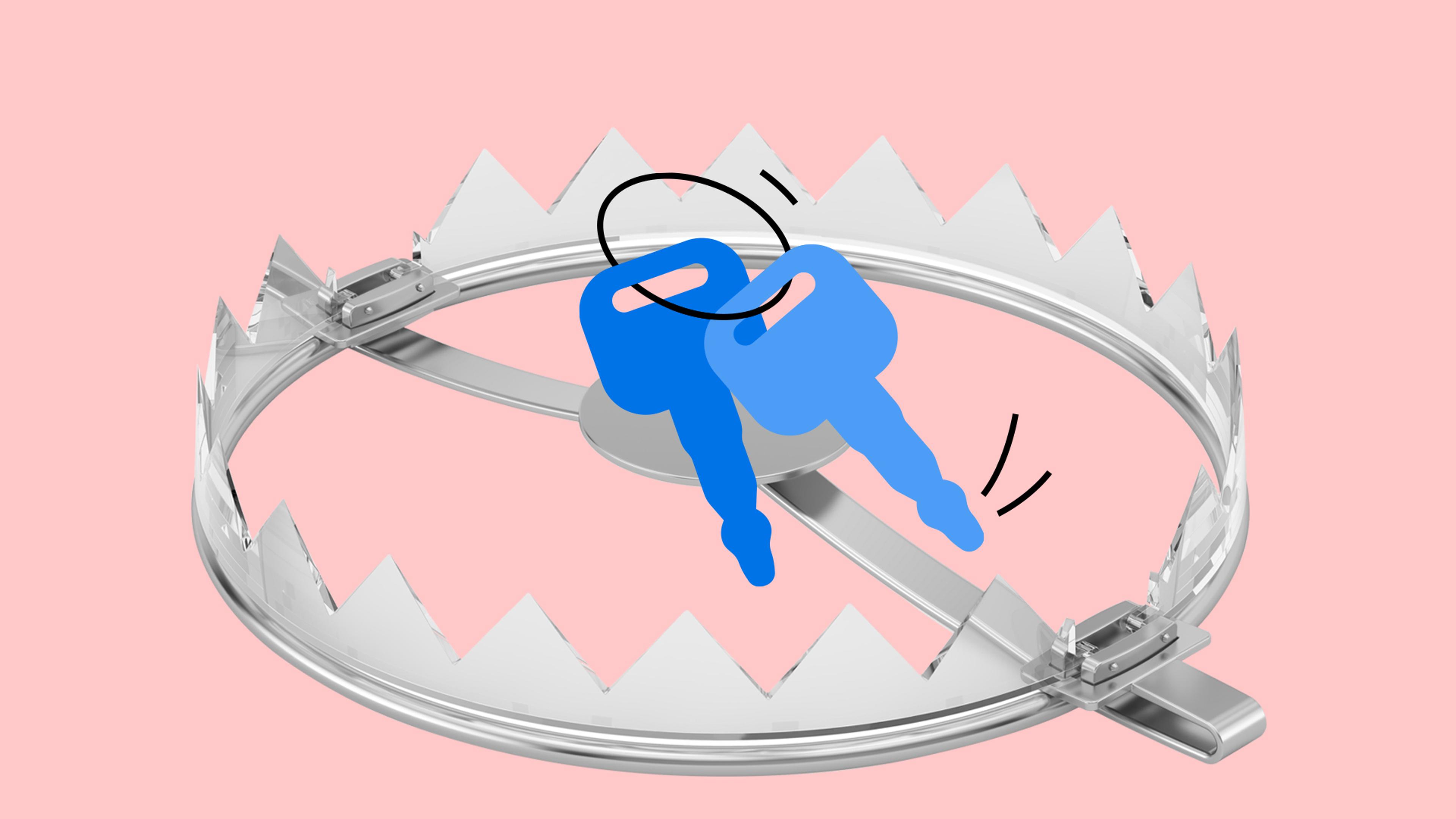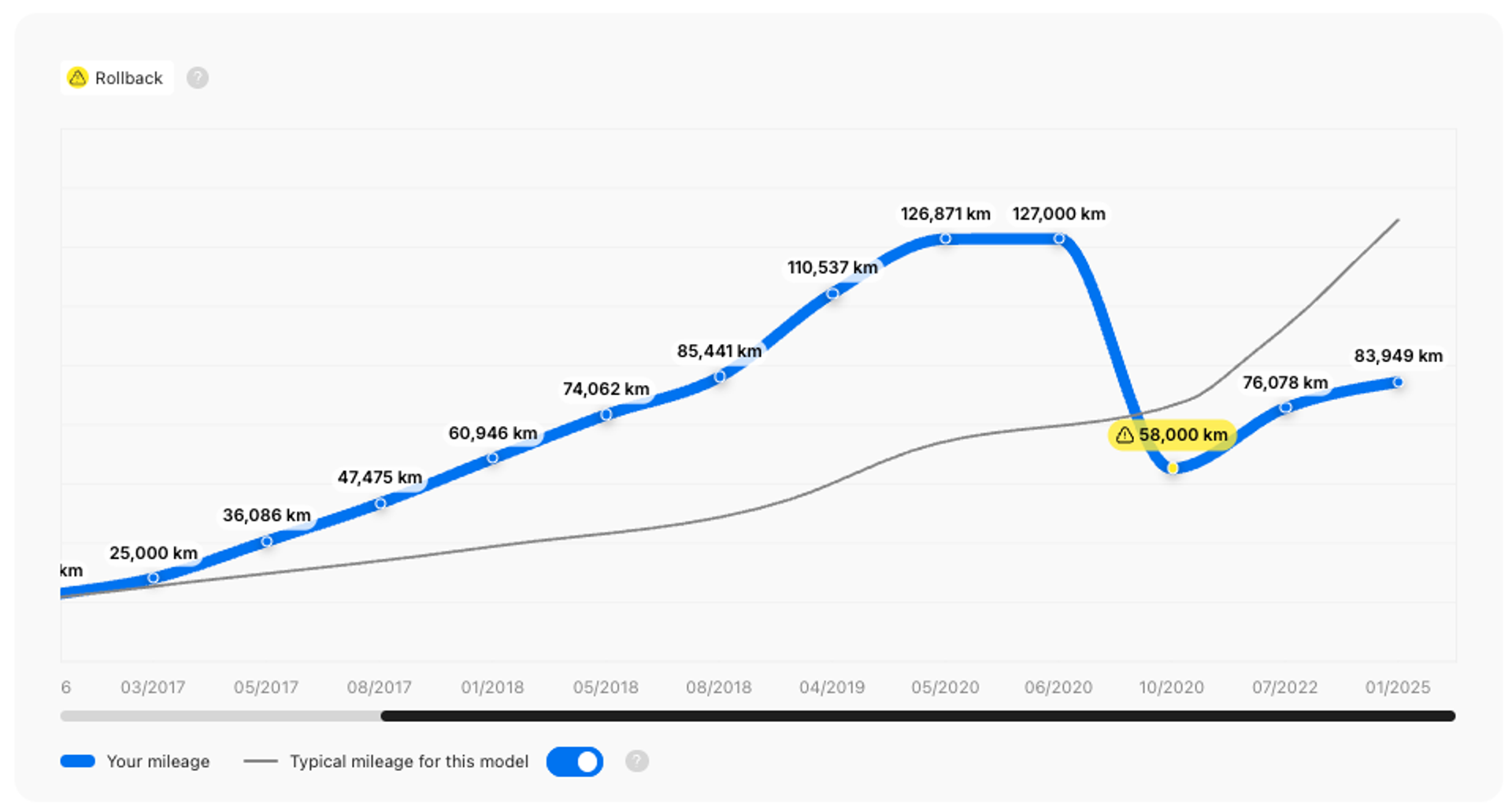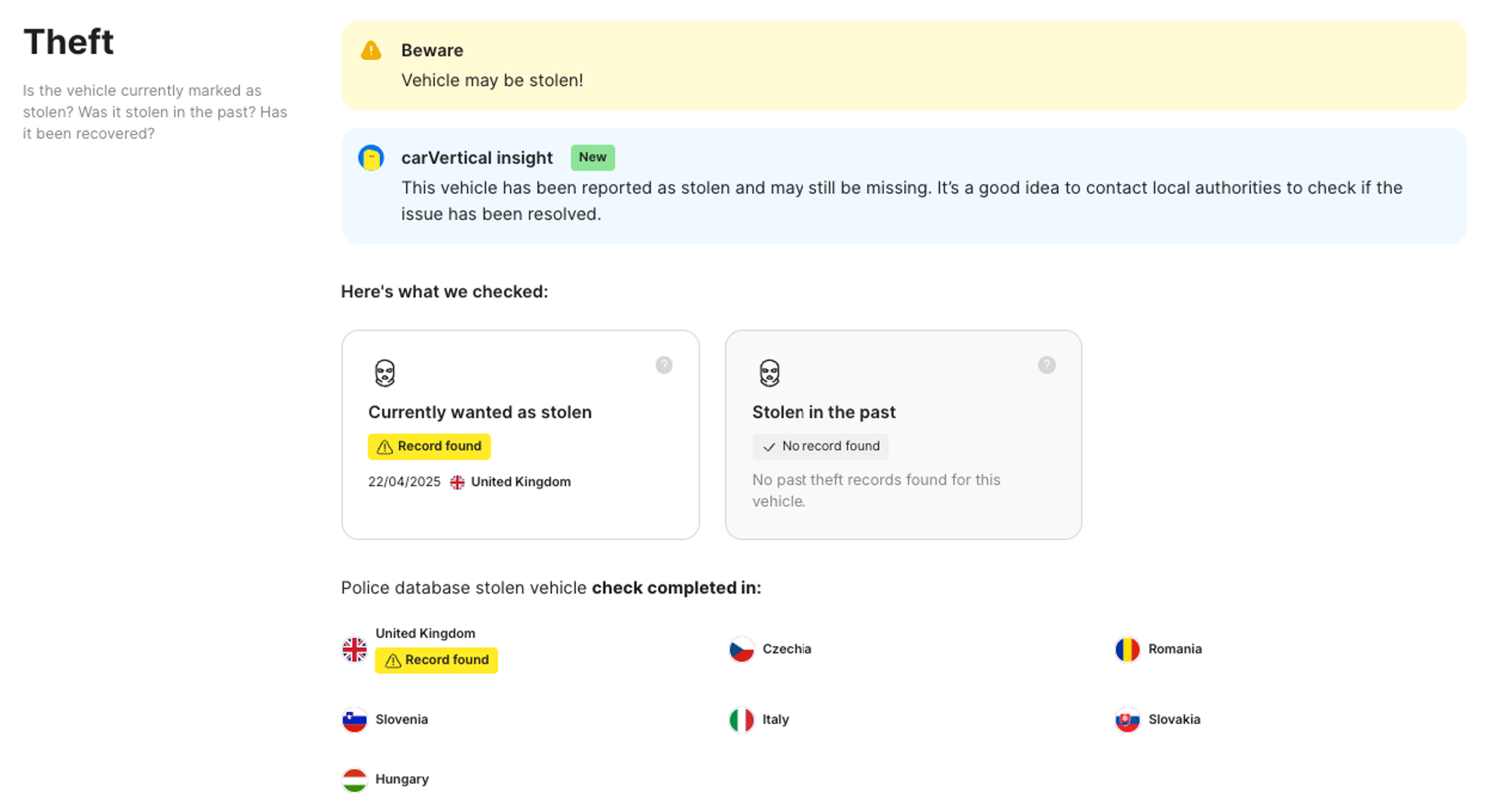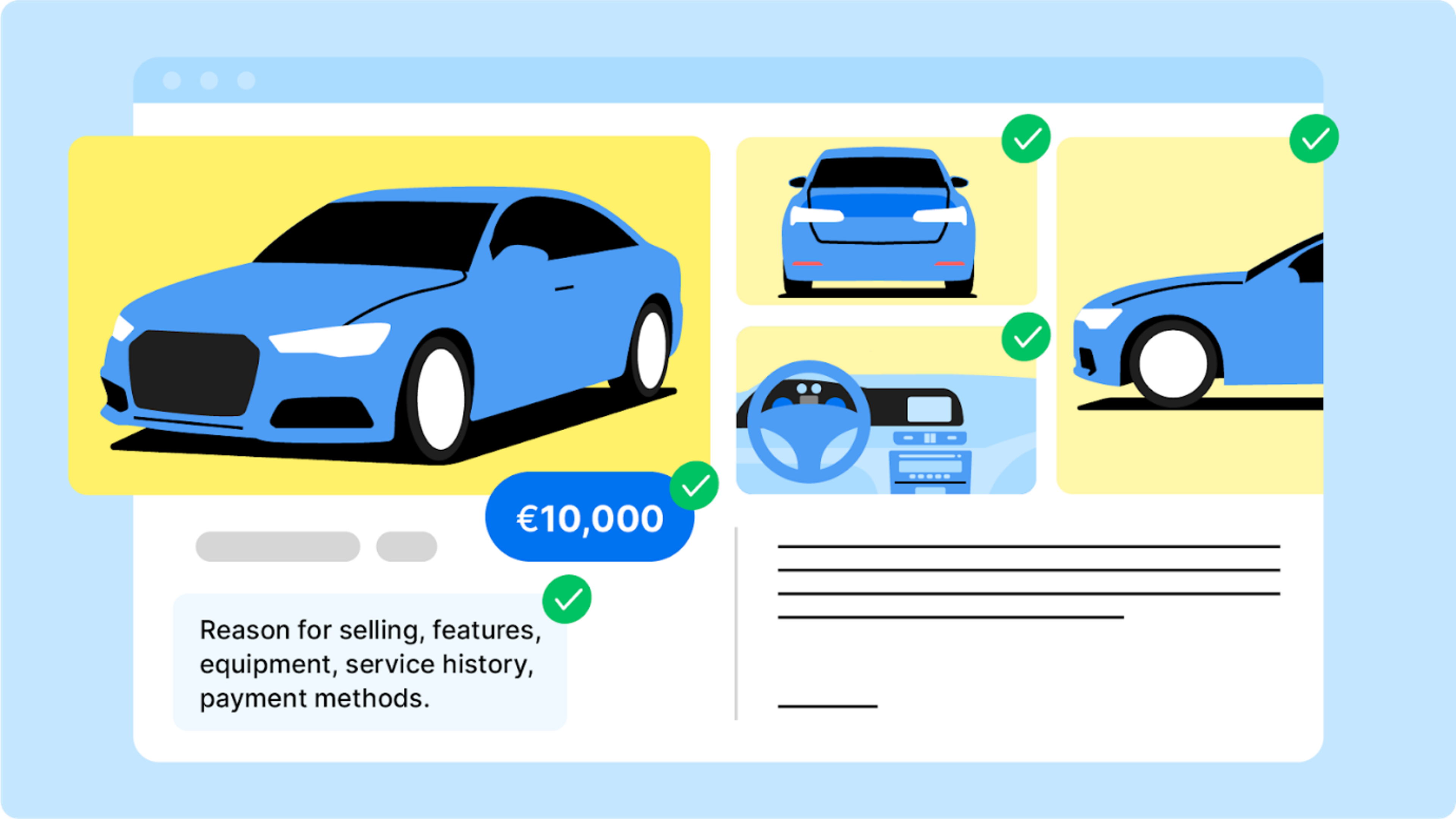22/08/2025
Top 5 used car buying scams in Ireland and how to spot them

Finding a great deal on a used car can be a fantastic feeling. But the Irish car market also attracts its share of scammers looking to make a quick euro off unsuspecting buyers. The Competition and Consumer Protection Commission (CCPC) found that a startling 20% of Irish shoppers who bought a second-hand car in 2021 didn’t perform a single check.
Skipping your homework can leave you with a dodgy motor, or worse, no car at all, and an empty bank account. To help you steer clear of trouble, we’re uncovering the most common car buying scams and showing you the red flags to watch for.
Used cars have dark secrets
Reveal them all! Just enter a VIN code and click the button:
1. Fake car ads
You’re scrolling through popular car buying sites in Ireland, and you see it: the perfect car at a price that’s almost too good to be true. This is a classic tactic used in one of the most brazen car buying scams.
Fraudsters will create a completely fake listing using photos stolen from other ads. Their goal is to lure you in with a bargain price and then pressure you into paying an upfront deposit to "secure" the vehicle before you've even seen it. Once the money is sent, the seller and the ad vanish without a trace.
Watch out for these red flags:
- The seller is vague, avoids answering specific questions, or refuses to meet in person.
- They push for a deposit or full payment through an unusual method.
- The price is significantly lower than similar models on the market.
2. Clocked mileage
Odometer tampering, or "clocking," is an age-old scam that remains a serious problem. A seller rolls back the car's mileage to make it appear less used, artificially inflating its value and hiding potential wear and tear. A car showing 80,000 kilometres might have actually travelled double that, meaning you could be facing premature mechanical failures and costly repairs down the line.
The easiest way to catch this scam is with a comprehensive vehicle history report. A carVertical report can reveal discrepancies in a car’s mileage history, flagging potential clocking and saving you from a money pit. You can read more about the penalties for odometer fraud.

Have a good look inside. Does a car with supposedly low mileage have a driver's seat that's worn to bits? Is the steering wheel smooth from years of use? Worn-out pedals don't lie, either. These are tell-tale signs that the odometer reading might be pure fiction.
3. Car cloning
This scam is ingenious: criminals take a stolen or written-off car and give it a new identity, copying the number plate and VIN/chassis number from a perfectly legal car of the same model. The result? A 'clone' that looks legit on the surface. The problem is, if the Gardaí uncover the switch, you won't just get a slap on the wrist – they'll seize the car, and your cash will be long gone.
Your best prevention technique is to research the VIN beforehand. Make sure the number on the logbook and your history report matches what you see on the car's chassis, under the windscreen, and on the door frame.
4. The car is stolen
You might think you'd spot a stolen car a mile off, but thousands are sold in the used car market every year. Getting caught with one, even if you bought it in good faith, means losing the car and your money when the Gardaí track it down.
This is one headache you can easily avoid. Punching the car's VIN into the carVertical database will flag if it's on a stolen vehicle register. And never hand over money without seeing the seller's proof of ownership and the original logbook – make sure the name on the documents matches the person selling you the car.

5. Outstanding finance
This one is a real trap for the unwary on the car market in Ireland. You find a car, pay the seller, and drive away happy, only to discover there's still an outstanding loan on it. In the eyes of the law, the finance company owns that car until the very last payment is made.
If the seller you bought it from does a runner and stops paying, the finance company can, and will, come to take the car back from you. You're then left with no car and the nightmare of trying to chase a ghost for your money.
Check your VIN
Avoid costly problems by checking a vehicle's history. Get a report instantly!
Pay attention to the ad and the seller’s behaviour
Scammers often betray themselves through inconsistency and pressure. So, if you're looking for a car, make sure to avoid the common mistakes used car buyers make. However, beyond the car itself, the ad and the seller can give you plenty of clues.

Keep an eye out for these red flags:
- Vague descriptions: The ad is light on details or filled with spelling and grammar mistakes.
- Pressure tactics: The seller claims other buyers are interested and you need to make a decision or a payment immediately.
- Evasive answers: They can't or won't answer specific questions about the car's history or condition.
- Odd meeting places: They insist on meeting in a strange location, like a service station or a random car park, instead of their home or a garage.
- Story doesn't add up: The reasons for selling seem flimsy or change during your conversation.
Your essential checklist for scam-free car buying
So, how do you protect yourself from these car buying scams? It's easier than you might think. Sticking to a few key rules will keep you safe from nearly every trick in the book.
- See it with your own eyes: This is a non-negotiable rule. Never, ever buy a car without seeing it in person first. Any genuine seller will happily arrange a viewing. If they’re making excuses, that’s your cue to walk away.
- Become a VIN detective: Remember the VIN checks we talked about? Do them. Make sure the numbers you see on the car's body match what's on the logbook and your history report. It’s a simple check that stops cloners in their tracks.
- Run a history check: This is your secret weapon. A carVertical report is essential. It digs up the dirt sellers try to hide, exposing everything from clocked mileage and theft alerts to that sneaky outstanding finance.
- Bring in backup: An extra pair of eyes can spot things you'll miss. Bring along a friend who knows their way around cars, or better yet, pay a local mechanic for a pre-purchase inspection. They'll know exactly what to look for, like how to properly test a car's engine and transmission.
Trust your gut feeling: At the end of the day, if a deal feels off or the seller is making you uneasy, listen to that little voice in your head. There are plenty of other great cars on the market. You don’t need the hassle of a dodgy one.
